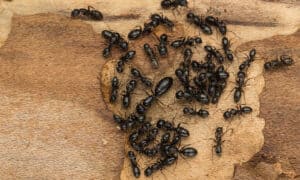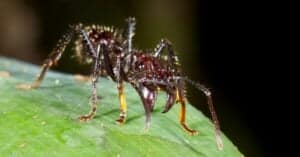Florida’s warm and humid climate makes it suitable for various insects, particularly ants. This summer, several ant species will emerge in Florida. Being aware of them is vital for taking steps to prevent ant infestations. This article will cover the different types of ants that will appear in Florida this summer and the months when they are active.
Common Ant Species in Florida This Summer
Here are some of the common ant species in Florida you can look out for this summer:
Argentine Ant
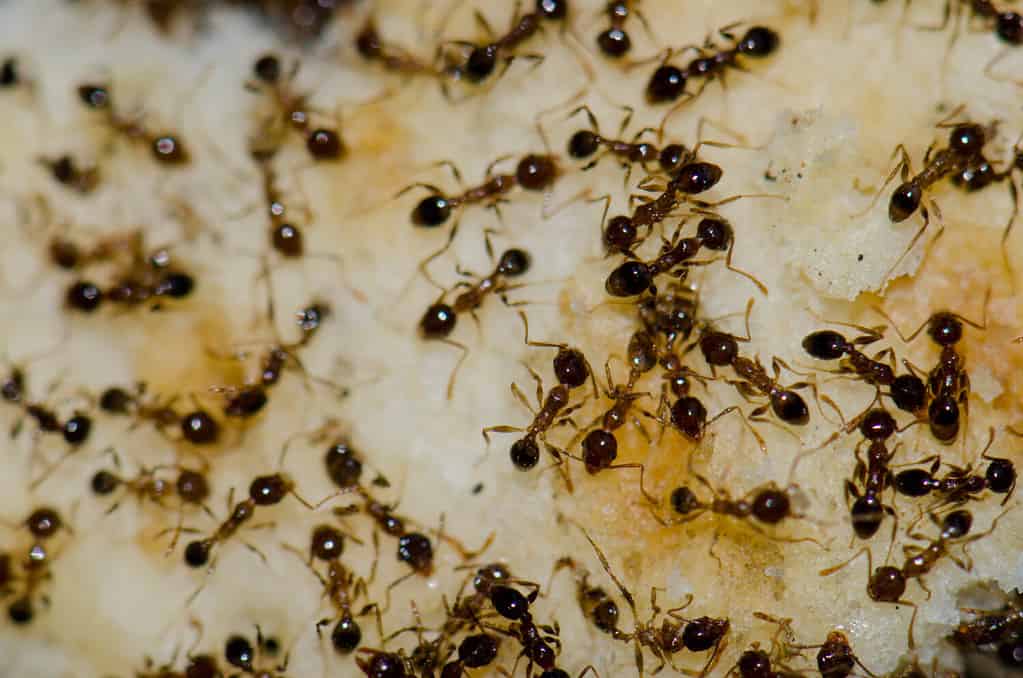
These ants come out mainly during springtime and are most active from March through May.
©Victor Suarez Naranjo/Shutterstock.com
Argentine ants have a light brown color and tend to form big colonies. You can usually find them in damp areas such as gardens, parks, and close to water. They come out mainly during springtime and are most active from March through May.
Ghost Ant
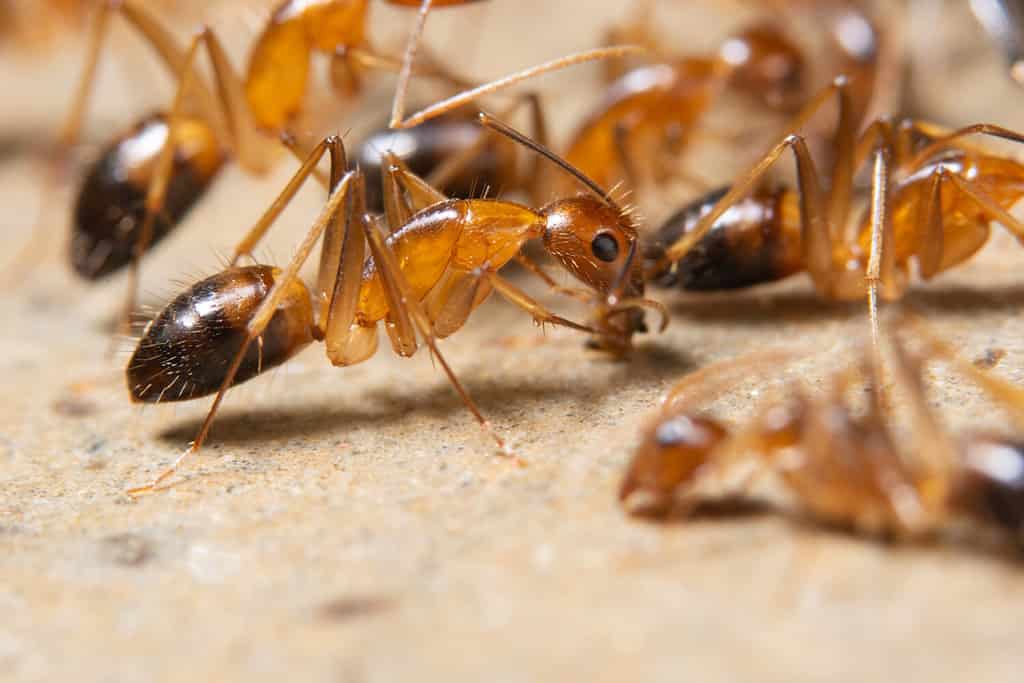
Ghost ants infest households and are drawn to foods containing sugar and oil.
©MR.AUKID PHUMSIRICHAT/Shutterstock.com
It can be challenging to spot ghost ants as they are tiny and have a light color. They infest households and are drawn to foods containing sugar and oil. Ghost ants usually appear during spring and are highly active from March to May.
White-Footed Ant
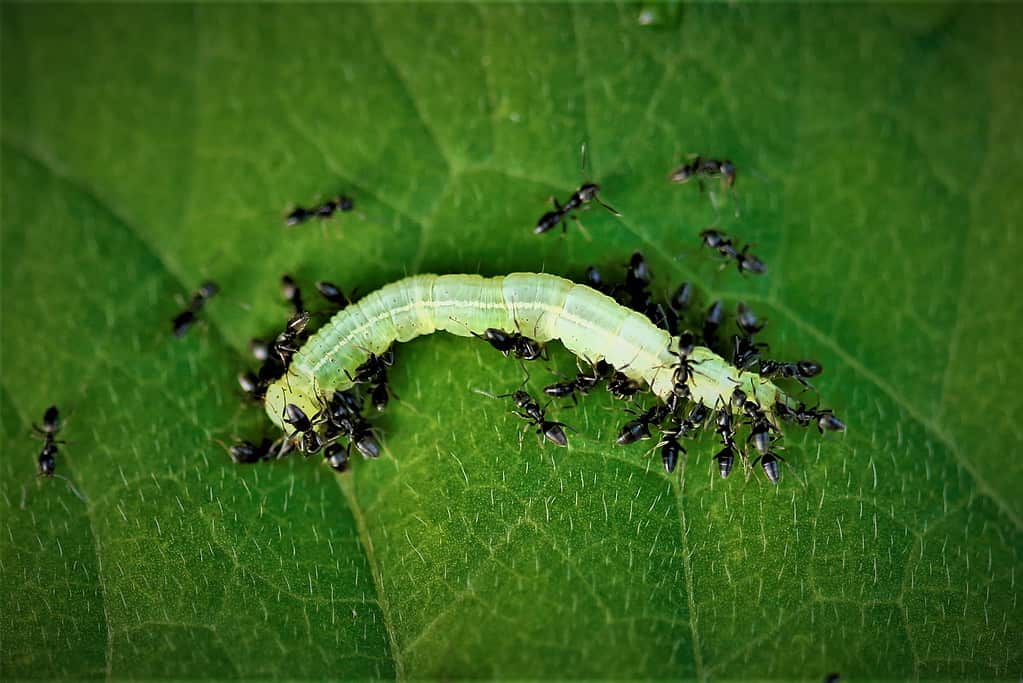
These ants are drawn to sugary foods and usually appear during summertime, with their peak activity from June to August.
©Dark Egg/Shutterstock.com
White-footed ants have white feet and are commonly in households. They are drawn to sugary foods and usually appear during summertime, with their peak activity from June to August.
Pyramid Ant
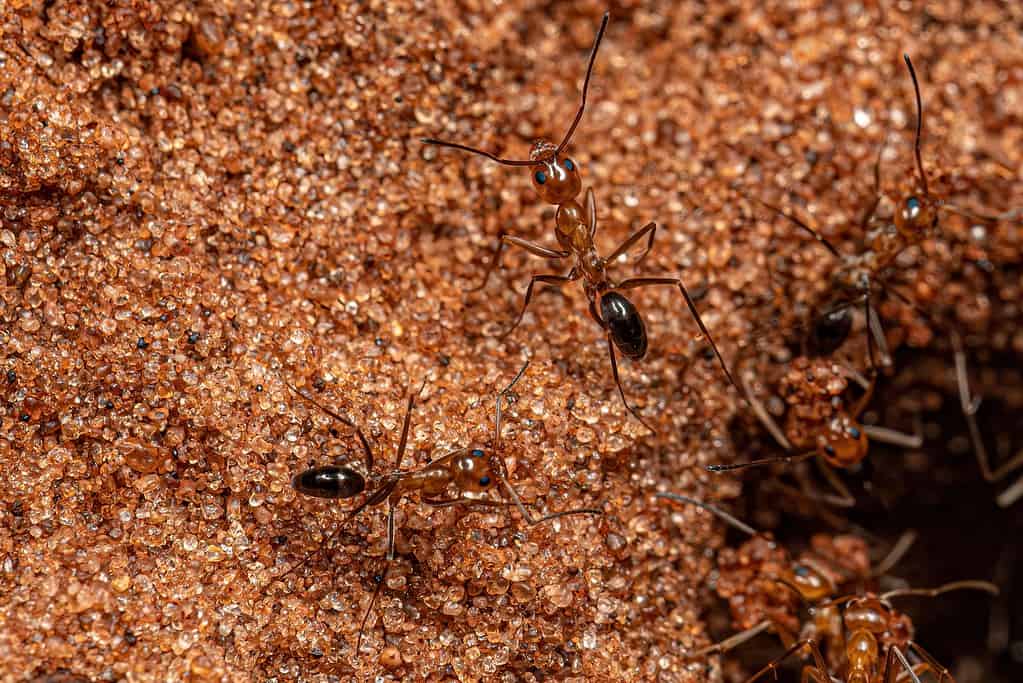
These ants usually appear during summertime and are most active from June to August.
©Vinicius R. Souza/Shutterstock.com
Pyramid ants are a type of ant that build mounds shaped like pyramids. You can usually find them in open places such as parks and fields. These ants usually appear during summertime and are most active from June to August.
Pavement Ant
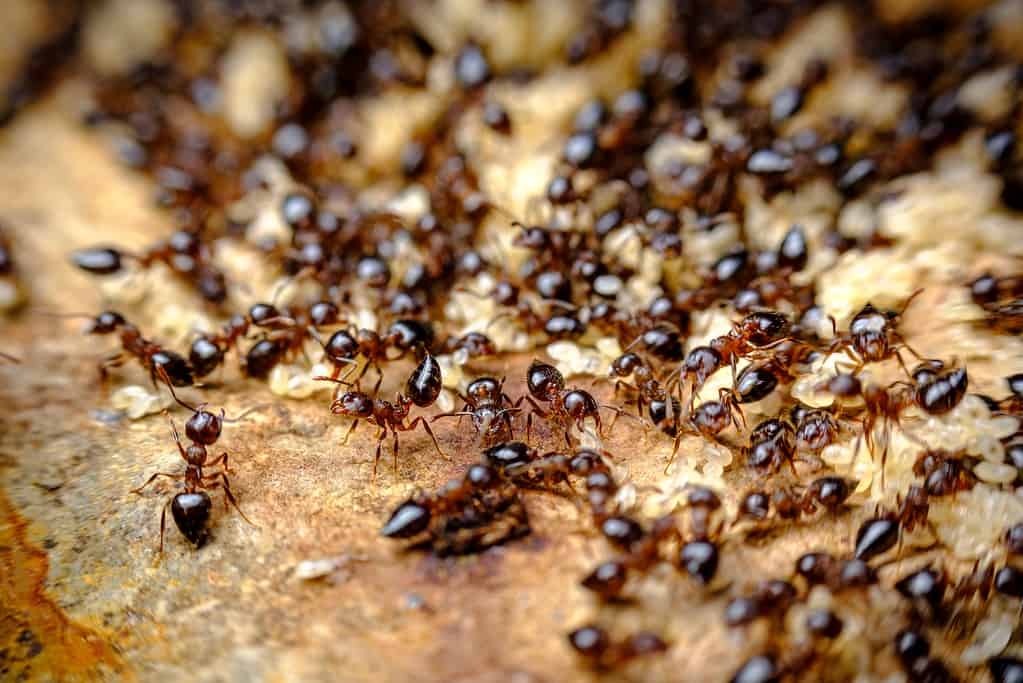
They are typically emerge in the spring and are most active between March and May.
©Ezume Images/Shutterstock.com
Pavement ants are a species of ant that is known for their ability to nest in pavement cracks. They are often found in urban areas and are attracted to sweet and greasy foods. Pavement ants typically emerge in the spring and are most active between March and May.
Rover Ant
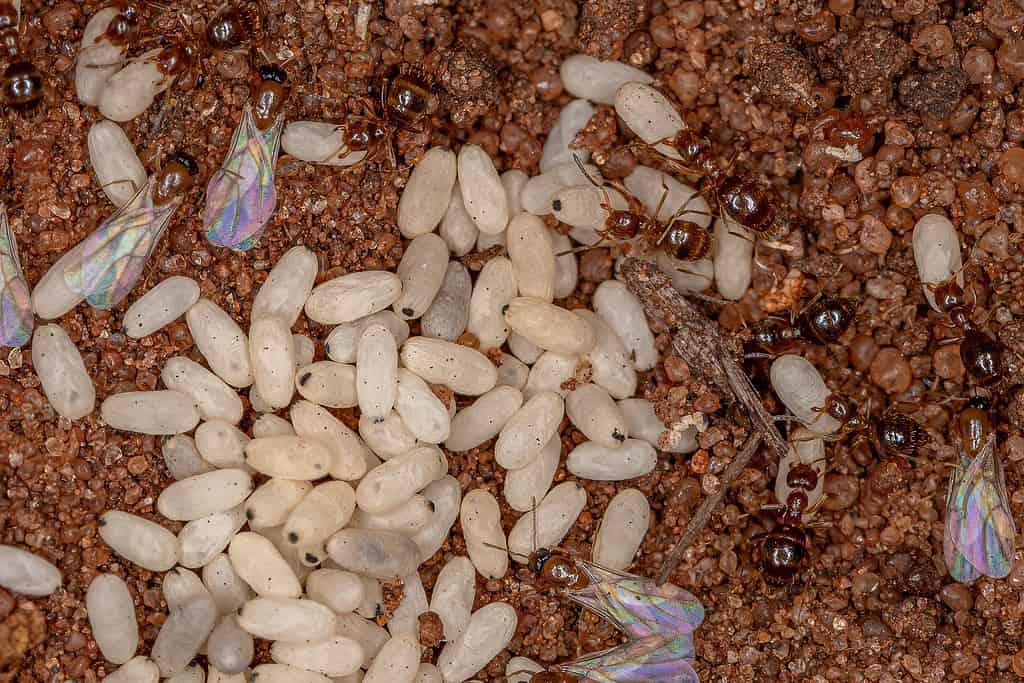
They are often in homes and are attracted to sweet and greasy foods.
©Vinicius R. Souza/Shutterstock.com
Rover ants are a species of ants that are known for their ability to move quickly and rapidly colonize new areas. They are often in homes and are attracted to sweet and greasy foods. Rover ants usually appear in the spring and are most lively between March and May.
Carpenter Ant
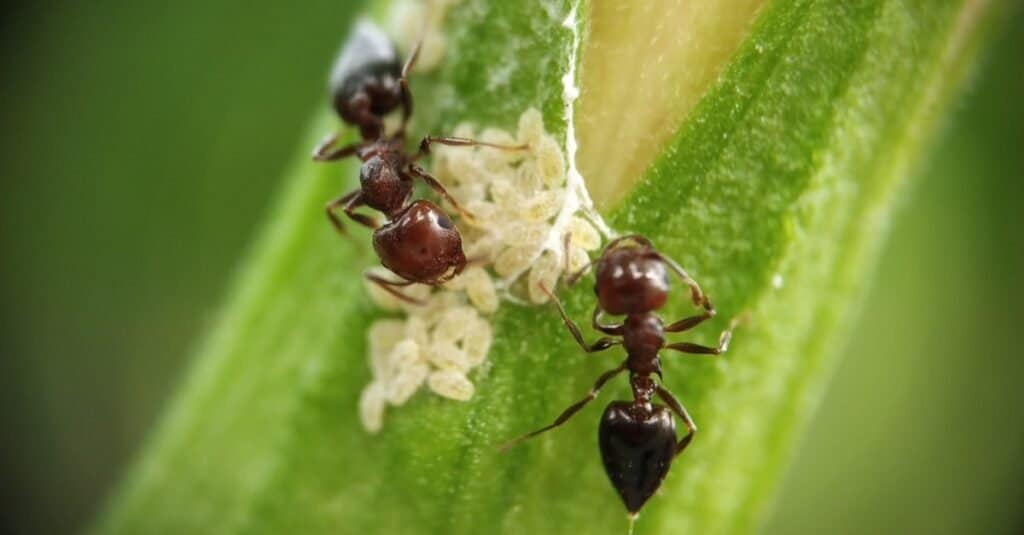
Small wood and plant carpenter ants keep their eggs on a yellow hibiscus flower.
©IamBijayaKumar/Shutterstock.com
Carpenter ants are a species of ant that is known for their ability to damage wood structures. They are typically black or dark brown and are often found in wooden structures like homes, decks, and fences. Carpenter ants typically emerge in the spring and are most active between March and May.
Pharaoh Ant
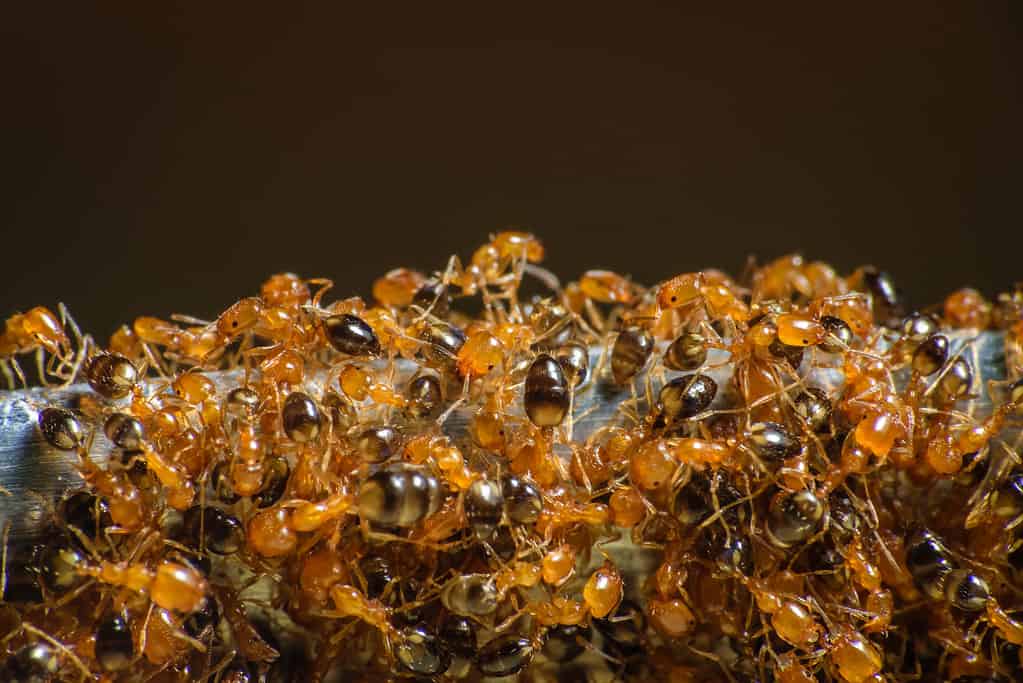
They are known for their yellow or light brown color.
©Suman_Ghosh/Shutterstock.com
Pharaoh ants are a species of ant that is known for their yellow or light brown color. They are often found in homes and are attracted to sweet and greasy foods. Pharaoh ants typically emerge in the spring and are most active between March and May.
Preventing Ant Infestations
It is essential to prevent ant infestations from protecting homes and preventing the spread of disease. You can take some of these steps to prevent ant infestations include:
- Sealing cracks and crevices in homes
- Removing standing water
- Regularly cleaning to eliminate food sources
- Storing food in airtight containers
Other Insects Set to Emerge in Florida
Florida will see the emergence of various insects this summer, like bees, wasps, flies, deer flies, and ticks apart from ants. Although these insects have ecological value, they can harm people and property. Therefore, it is crucial to examine each insect and its potential impact.
Bees
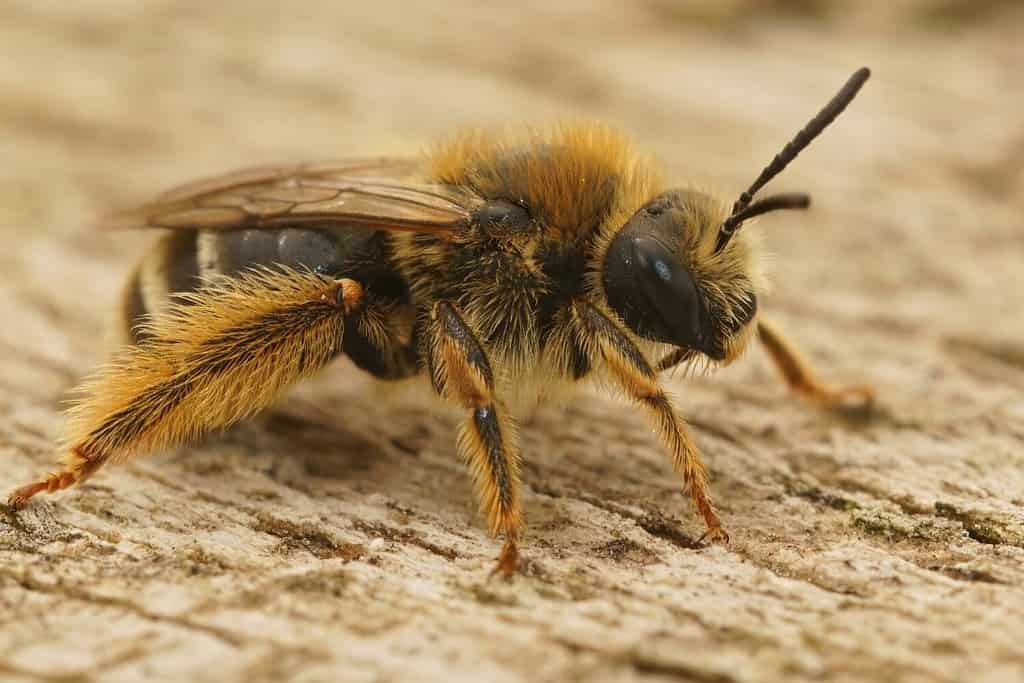
It is important to keep in mind that bees are most active between March and May.
©HWall/Shutterstock.com
Although bees are crucial pollinators in the food chain, they can sting when they feel endangered, which can cause pain and potential allergic reactions in some people. It is important to keep in mind that bees are most active between March and May.
Wasps
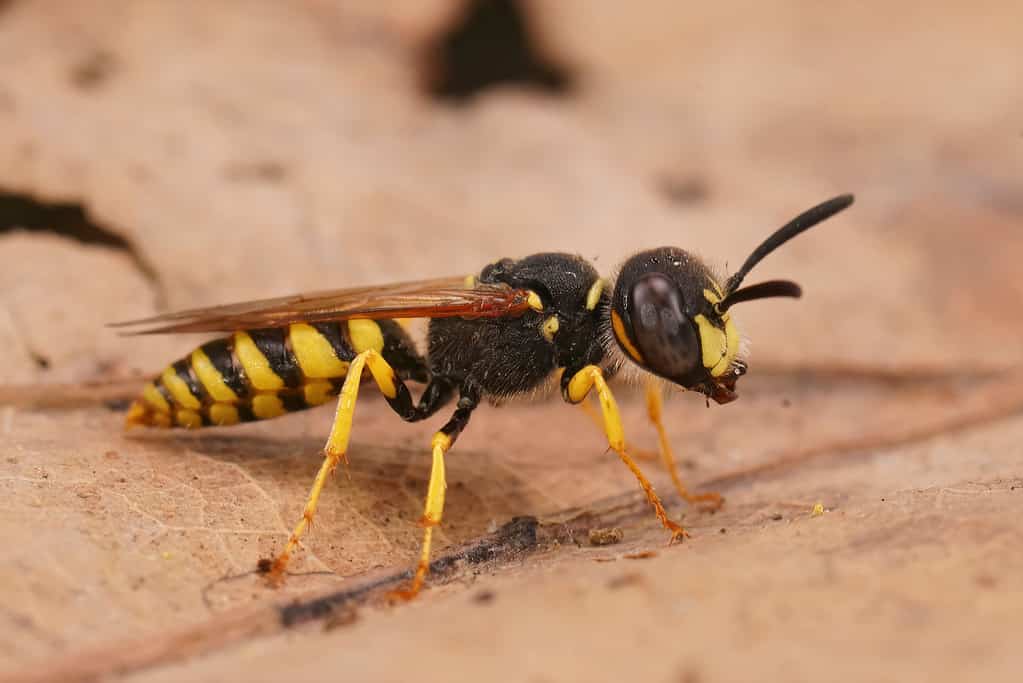
If wasps feel threatened, they can become aggressive.
©iStock.com/Wirestock
During summertime, wasps, known for their painful stings, tend to congregate near food sources like outdoor picnics and garbage cans. If they feel threatened, they can become aggressive.
Flies
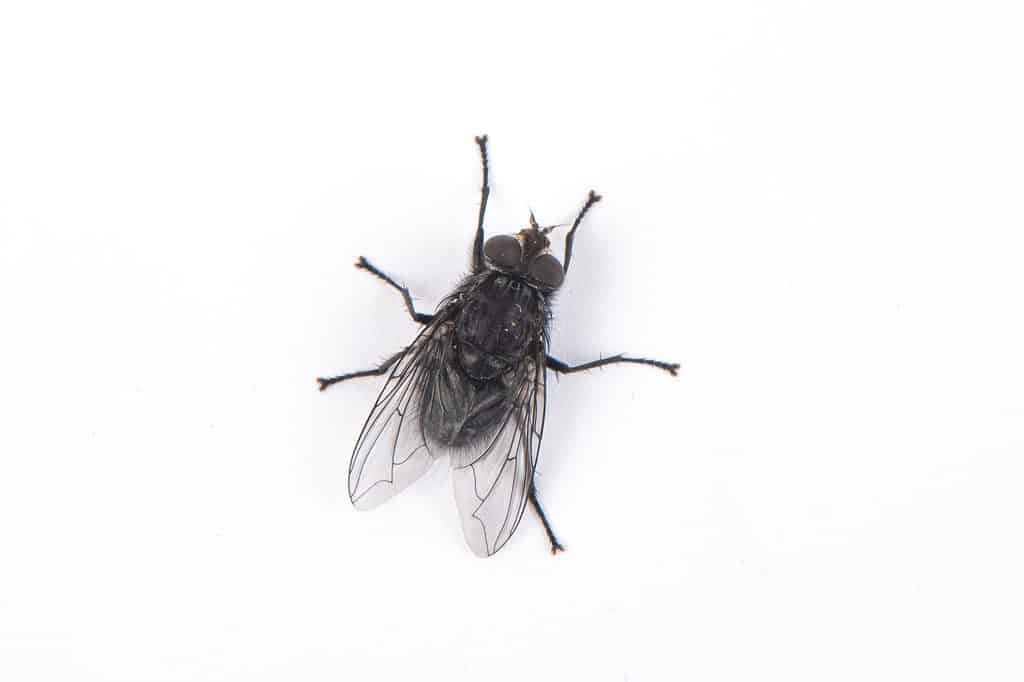
They transmit disease by carrying bacteria and viruses on their bodies, which they pick up while hunting for food and garbage.
©iStock.com/zhikun sun
Flies can take over your indoor and warm outdoor areas during summer. They transmit disease by carrying bacteria and viruses on their bodies, which they pick up while hunting for food and garbage.
Deer Flies
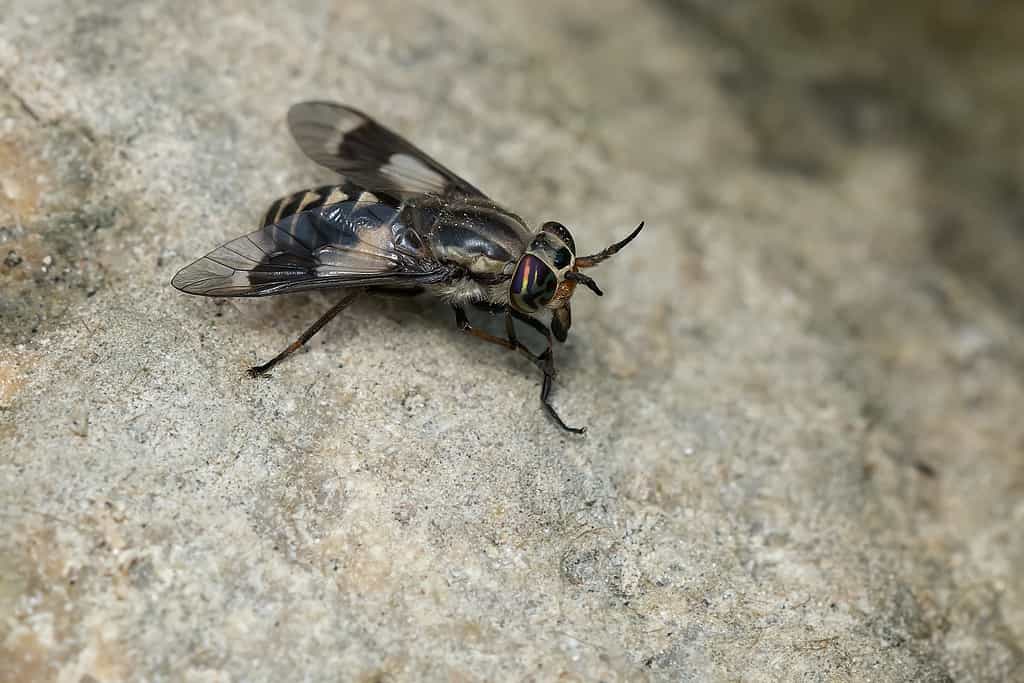
Deer flies are known for their painful bites, which can lead to infections and discomfort.
©Paul Reeves Photography/Shutterstock.com
During the summer, near bodies of water like rivers and lakes, you might come across deer flies known for their painful bites, which can lead to infections and discomfort.
Ticks
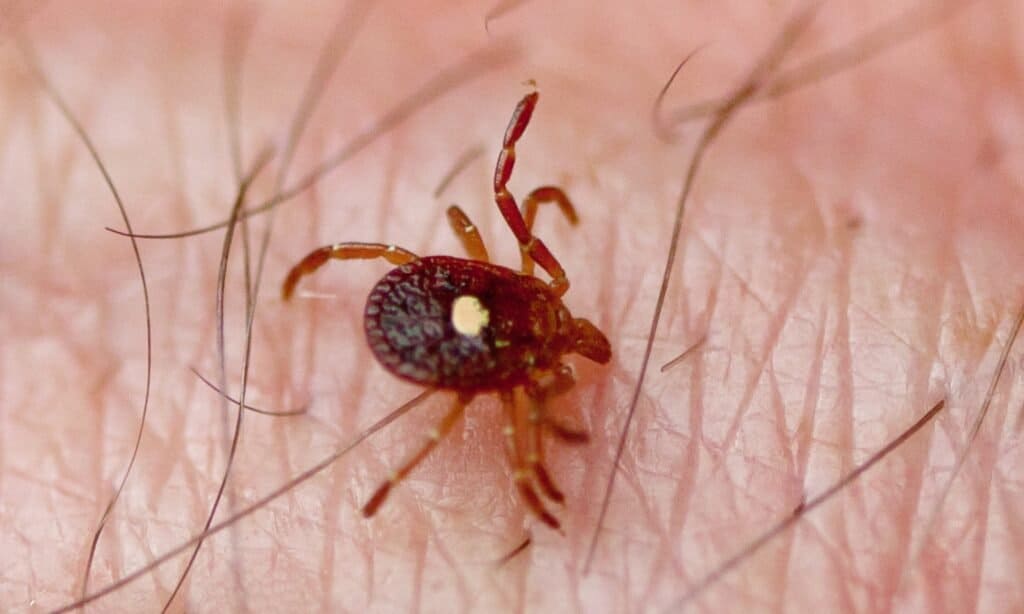
Ticks can transmit diseases such as
Lyme Disease
and
Rocky Mountain Spotted Fever
.
©iStock.com/epantha
During the summer, ticks, parasites that feed on the blood of animals and humans, can transmit diseases such as Lyme Disease and Rocky Mountain Spotted Fever.
Preventing Insect Infestations
To avoid insect infestations, you should eliminate places where insects can live and find food. This includes getting rid of standing water, regularly cleaning up to remove food sources, using insect repellent, and wearing protective clothing in areas with many bugs.
If you have an insect infestation, it’s better to hire a professional pest control service for the effective elimination of the problem and to minimize the risk of health and property damage.
Conclusion
Ants, bees, wasps, flies, deer flies, and ticks will likely emerge in Florida during summer. These insects can harm homes and transmit diseases like Lyme Disease and Rocky Mountain Spotted Fever. Therefore, it is important to take preventative steps to avoid infestations, including sealing cracks and crevices in homes, removing standing water, regular cleaning to eliminate food sources, and storing food in airtight containers. If an infestation occurs, hiring a professional pest control service is ideal for eliminating the problem effectively.
This summer, you can protect your home and family from potential health and property damage by preventing and eliminating insect infestations.
The photo featured at the top of this post is © Ernie Cooper/Shutterstock.com
Thank you for reading! Have some feedback for us? Contact the AZ Animals editorial team.




